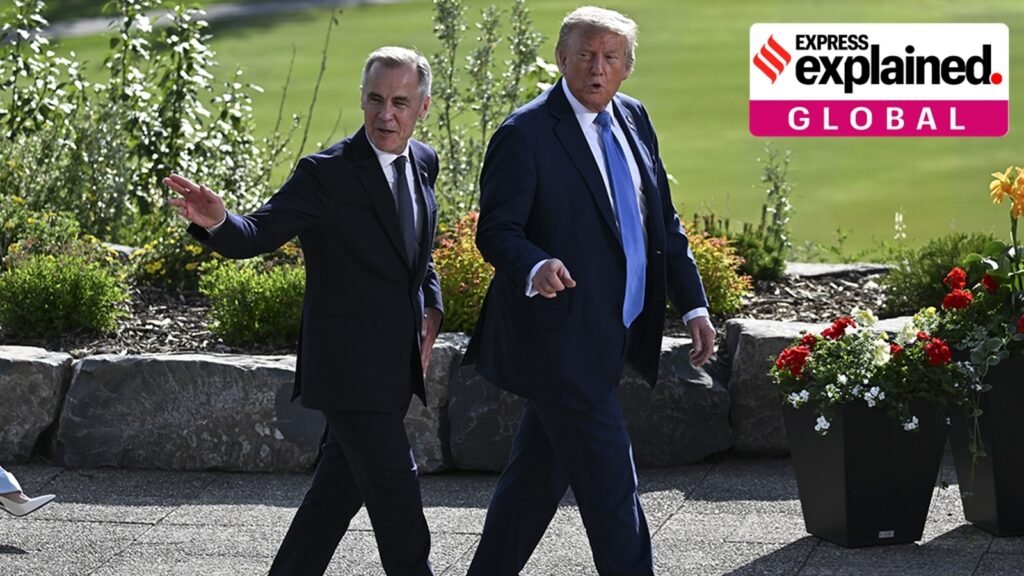In a bid to restart stalled trade negotiations with the United States, Canada scrapped its Digital Services Tax (DST) hours before it was due to take effect on Monday.
Calling the DST “a direct and blatant attack” on the US, President Donald Trump had on Friday announced the termination of all trade discussions with Canada. With the contentious tax out of the way, talks between Washington and Ottawa will likely resume.
The DST was a 3% levy on the digital services revenue a firm made from Canadian users above $20 million in a calendar year. Controversially, the tax was set to be retroactively implemented beginning 2022.
This would have had a significant impact on American technology giants such as Google, Meta, Apple, and Amazon — American tech companies would have had to pay roughly $2.7 billion to the Canadian government, if the tax were to be implemented, The New York Times had reported.
“The DST was announced in 2020 to address the fact that many large technology companies operating in Canada may not otherwise pay tax on revenues generated from Canadians…,” Canada’s finance ministry said in its statement on Sunday.
While the law had been passed earlier, payments were due from Monday.
What does Canada’s U-turn mean?
Canada is the United States’ second-largest trading partner after Mexico, and the largest buyer of US exports. It bought $349.4 billion of US goods and exported $412.7 billion to the US last year, according to US Census Bureau data.
Story continues below this ad
At the same time, it currently faces the steepest of Trump’s tariffs: apart from the 10% base tariff imposed on most countries, Canada (and Mexico) face an additional 25% on all exports to the US, apparently meant to curb illegal immigration and stop fentanyl smuggling. Trump has also slapped 50% tariffs on steel and aluminum imports from Canada and 25% on auto imports.
This makes getting a trade deal with the US a top priority for Canada. Scrapping the DST would help in this regard — Trump had been among its most vehement critics. Early indications are that Washington and Ottawa could meet the previously-set July 21 deadline for a trade agreement.
Domestically, the U-turn is unlikely to hurt Canada’s Prime Minister Mark Carney, despite his election platform revolving around standing up to the US President. This is because the DST was not particularly popular in Canada either since it could have raised the cost of all kinds of digital services — from hailing cab rides to streaming movies.
In fact, in recent months, many speculated that the tax’s best purpose could be to serve as a bargaining chip in ongoing trade talks with the US.
© The Indian Express Pvt Ltd


